Endangered Species Conservation
Learn to evaluate the vulnerabilities of small populations and develop successful conservation actions to save them from extinction.
What You'll Study
- Evaluate the risk of extinction and prioritize management options for species in the wild and captivity.
- Practice cutting-edge techniques in gamete biology and endocrinology and non-invasive hormone monitoring to promote success in captive breeding.
- Create a management plan for an endangered species that incorporates recommended recovery strategies.
- Learn how animal care, veterinary medicine, and behavioral observations can lead to improvements in animal welfare in a captive setting.
- Address the application of concepts of global health, population genetics and genomics to the management of endangered species.
Program Details
- Semesters offered
Spring | Mason’s academic calendar
- Credits
- Cost
Tuition | Mason’s tuition and fees
Semester Fee | $2048 per semester
Mandatory Room and Board | Pricing Structure
- Who is eligible?
3rd- and 4th-year undergraduates with at least 60 credit hours from any accredited college or university and post-baccalaureate students. Previous coursework should include at least one upper-level course in biological sciences or related discipline, a completed semester at SMSC, or permission from the instructor.
Meet the Faculty
Josh is an ecosystem ecologist whose research explores the effects of disturbance and human influences on ecological processes. His professional background focuses on citizen science research, curriculum development, and assessment design.

Associate Professor of Conservation Studies
Smithsonian-Mason School of Conservation
Smithsonian-Mason School of Conservation
Anneke is a biological anthropologist specializing in the ecology, behavior, and conservation of primates, particularly in the Neotropics. Her research concerns how ecological and evolutionary processes influence behavioral patterns.
Living and Learning at SMSC
Each cohort (20 or fewer students) lives and studies together on site at the SMSC campus. Students follow an intensive, structured schedule to get the most out of this conservation-focused experience.
- Classroom, lab, or field work typically from 10:00 am – 3 pm, 5 days per week
- A 5-week independent research project working with a conservation mentor to design a study and present your findings to the professional conservation community
- Field experiences at Smithsonian Conservation Biology Institute or nearby sites including the Smithsonian National Zoo in Washington, D.C.
- Additional seminars and instruction from guests or visiting conservation practitioners
Take the next step toward a once-in-a-lifetime opportunity




